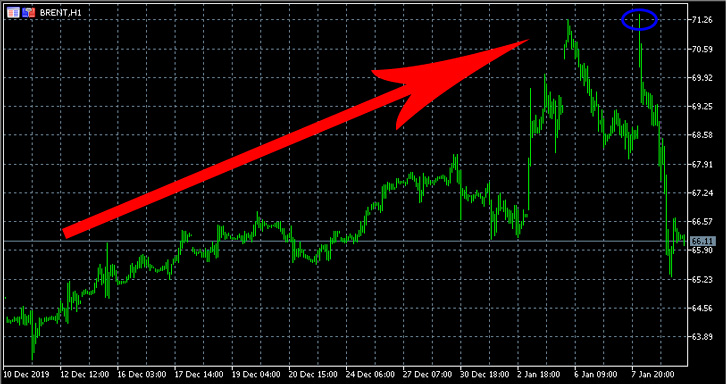New war and its impact on oil prices
Recent events in the Middle East have significantly revived the oil market; the price of this futures confidently continued to rise.
The situation around Iran is heating up and this cannot but affect the price of oil supplied to the market, because Iran is one of the largest suppliers of black gold.
The country has the largest oil reserves and ranks first in the rankings of production volumes.
Revenues from oil exports make up the lion's share of Iran's budget, so the country's government is interested in increasing the price of this energy carrier.
At the end of October, one of the representatives of the International Monetary Fund said that in order to balance the 2020 budget, Iran would need to sell oil at $194 per barrel.
Thanks to the attacks on US facilities located in Iraq, the price of Brent has already reached $71 per barrel, what will happen after an even greater escalation of the situation?
 True, after US statements about huge reserves of gasoline and that the United States armed forces would not get involved in the conflict, oil again dropped to $65 per barrel.
True, after US statements about huge reserves of gasoline and that the United States armed forces would not get involved in the conflict, oil again dropped to $65 per barrel.
But one cannot expect such news to have a lasting impact on the market; most likely, price growth will resume after the first bad news from the Middle East.
Therefore, in the current situation, purchase transactions remain relevant; it is assumed that the price will most likely return to the level of $70 per barrel of Brent.
Read also:
- Oil prices and exchange rates - http://time-forex.com/interes/neft-kurs-valut
- How to buy and sell oil - http://time-forex.com/vopros/prodavat-pokupat-neft
